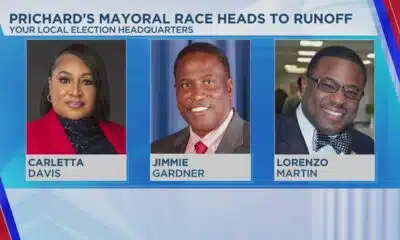(The Center Square) – It’s been more than three years since the Dobbs v. Jackson Women’s Health Organization decision by the U.S. Supreme Court that reversed Roe v. Wade, returning the authority to regulate abortion to individual states.
And while states are determining their own paths on the contentious issue of abortion, a recent major poll shows an increasing number of Americans in the post-Dobbs era are identifying as pro-life.
According to a June Gallup poll, 43% of Americans claimed the pro-life label – a 2-point jump from last year – while the pro-choice crowd shrank from 54% to 51%.
The slight move in public opinion is encouraging for pro-life supporters.
Meanwhile, in states that lean more pro-choice, political leaders are ensuring organizations like Planned Parenthood are fully funded, despite President Trump’s one-year ban on Medicaid funding for Planned Parenthood.
There are currently conflicting federal court rulings regarding the administration’s efforts to ban Medicaid funding for Planned Parenthood. One federal judge has temporarily blocked the ban nationwide, while a separate judge has allowed the funding cuts to take effect in Maine.
Washington Gov. Bob Ferguson pledged in July to use state funds to cover about $11 million in federal Medicaid funding for Planned Parenthood that the Trump administration cut. The funding will be used if the court challenge is unsuccessful.
Eowyn Savela, vice president of public affairs of Planned Parenthood of Greater Washington and North Idaho, emailed The Center Square: “Reproductive health access is under attack by Donald Trump and his allies in Congress. Their goal is to shut down health centers and eliminate patients’ access to health care, including taking away the decision of patients to see their preferred providers. While Washington is protected for now from the federal Planned Parenthood defund, finances for abortion providers continue to be in a precarious position.”
Nevertheless, pro-life and maternity care organizations have seen a growing demand.
The Center Square took a tour of Care Net of Puget Sound in Puyallup, Wash. This Christian-based nonprofit offers services ranging from pregnancy testing and ultrasounds to parenting classes and post-abortion care.
The Center Square’s Carleen Johnson interviews Amelia Graham the Communications Director for Care Net of Puget Sound
“We had a couple come in, and they definitely wanted an abortion,” Care Net Client Services Director Kim Sandberg said, as she stood in the doorway of the facility’s ultrasound room. “And so, he was sitting in the chair, and she was there on the table, and they were looking at the ultrasound. And she looked at him, and he was crying, and he said, ‘That’s our baby. We’re going to keep this baby.’ And she said the same thing.”
She shared that other young women come in and sometimes, after having the ultrasound, decide not to have the baby.
“We always ask them if it’s OK if we still follow up because it shows that we really care and we’re nonjudgmental because we do care about these girls,” Sandberg said.
Communications Director Amelia Graham told The Center Square that Care Net of Puget Sound often provides counseling to women years after an abortion.
“Sometimes it can be years, or it can be decades after that experience. And we believe that they deserve love and support and care as well,” Graham explained. “And as a faith-based ministry, we believe that God loves them and cares for them and wants them to experience full and complete healing no matter what decisions they have made in their lives or what experience they’ve had.”
Graham said actual figures on abortion statistics post-Dobbs are challenging to obtain.
“It’s estimated that over 60% of abortions are done through the abortion pill. So, historically, you would need to go into a clinic and see a nurse or a provider in order to receive that medication,” Graham said. “But now these are all being sent to women at home. And as a ministry that cares deeply about these women, it breaks our hearts because they’re not going into the abortion experience knowing what to expect or having the ongoing support or having the knowledge of what’s going on in their bodies. And the complications are downplayed.”
She noted an April 28 report from the Ethics in Public Policy Center that gathered data from insurance claims related to the abortion pill.
“This largest-known study of the abortion pill is based on analysis of data from an all-payer insurance claims database that includes 865,727 prescribed mifepristone abortions from 2017 to 2023. 10.93 percent of women experienced sepsis, infection, hemorrhaging, or another serious adverse event within 45 days following a mifepristone abortion,” the report states.
Twenty-five states and the District of Columbia allow women to receive the abortion pill following a telehealth visit.
Andrea Trudden is vice president of communications with Heartbeat International, which serves more than 3,800 affiliated pregnancy help locations, maternity homes and nonprofit adoption agencies worldwide.
She told The Center Square the demand for pregnancy help and related services has increased following the Dobbs decision.
“We started to see the split between life states and abortion states and pregnancy health organizations stepping up even more because they were already there, but people were asking, ‘Where do we go?’” she said. “It’s always been kind of a quiet charity that you didn’t know about until you needed to know about it. And now, because of the national conversation about defunding Planned Parenthood and different states classifying themselves as sanctuary states for abortion, people are talking about it.”
Trudden said providing an ultrasound to a woman who may be on the fence about terminating her pregnancy is critical to their work.
“So, what we’re seeing across the board is upwards of 80% when they see that ultrasound or they hear the heartbeat, stating their outcome is going to be to choose life,” she said.
Kathleen Wilson is the executive director of Mary’s Shelter, a Virginia-based organization she founded nearly 20 years ago. Mary’s Shelter offers pregnancy counseling, housing and support services for women and children who stay with the organization for at least three years.
“We’ve taken in hundreds and hundreds of women,” Wilson noted. “A lot of their stories are so hard to hear. They don’t have a place to live. They don’t have family support. They’re in an abusive relationship. They haven’t been able to find a job, you know, whatever. The stories are always heartbreaking and always difficult to hear, but it’s the same story in the end, in that they want to have their baby.”
Mary’s Shelter includes educational opportunities and job training, as well as housing.
“We’ve had women [who] go on to be surgical techs, going on to be RNs, phlebotomists, teachers, real estate. It’s been a blessing to be part of it. They couldn’t imagine their life without their child. We hear this all the time,” Wilson said.
Graham provided statistics on Care Net’s growing impact from 2024 and 2025 to date.
“We served over 14,500 individuals (a 30% YOY increase) across programs & centers,” she emailed The Center Square about 2024. “Our medical team performed almost 1,500 life-changing ultrasounds and 89% of women who saw their baby on the ultrasound chose life.”
As for 2025, through July, she reported, “We’ve served over 10,000 individuals across programs & centers. We’ve performed over 1,000 ultrasounds.”







































